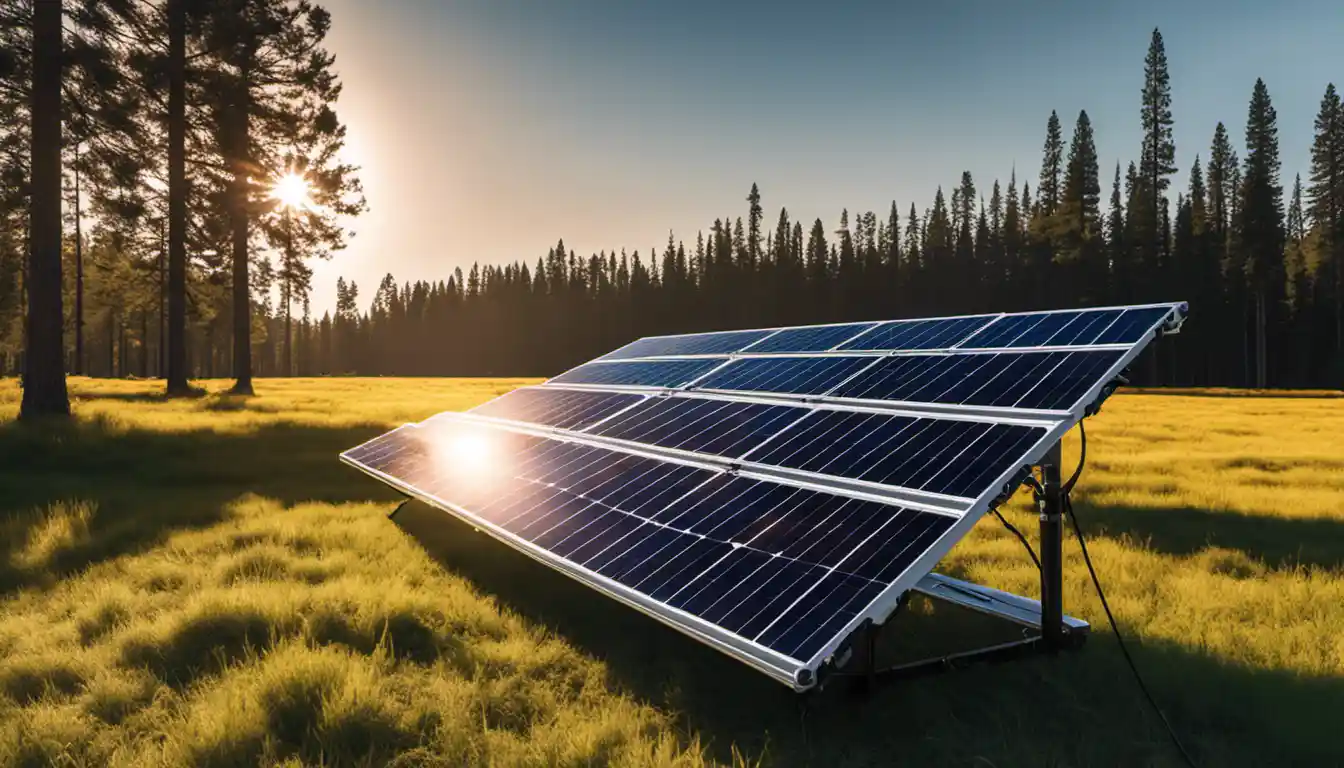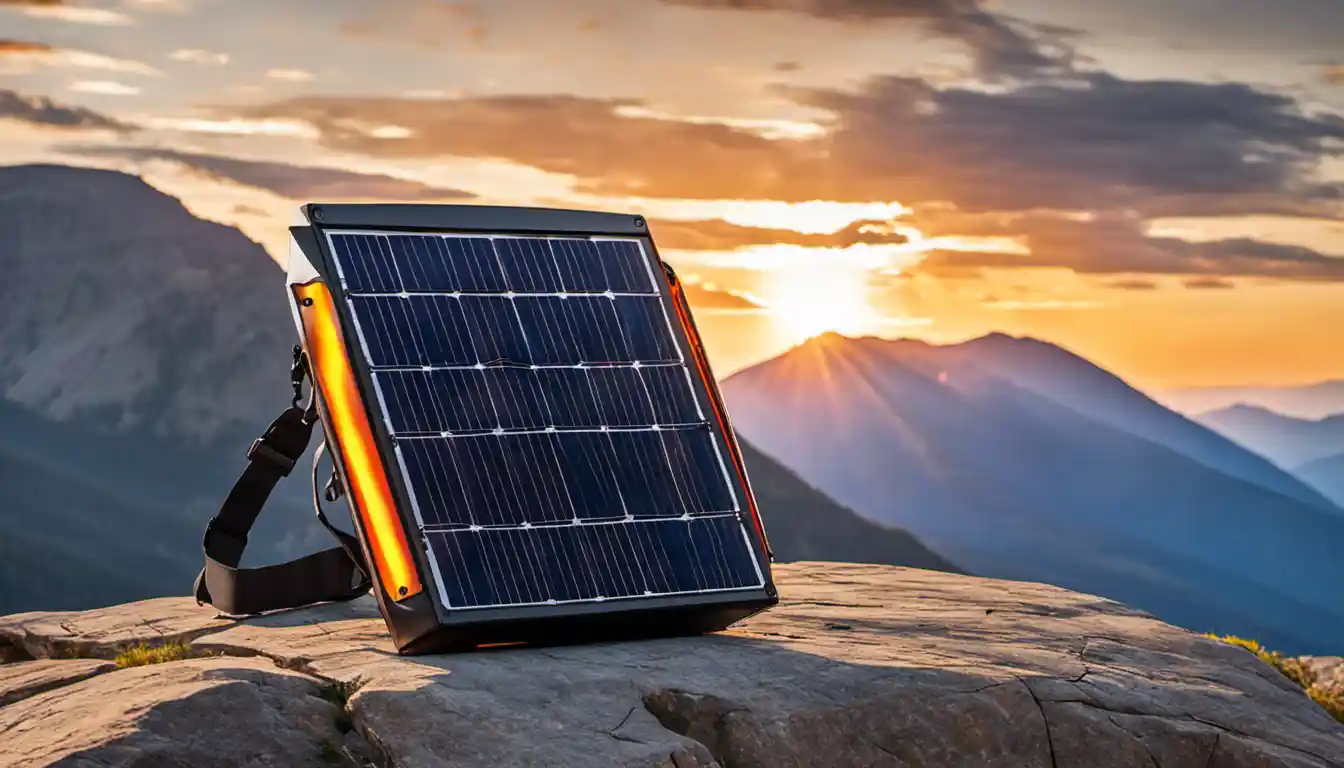Introduction to Portable Solar Panels
Portable solar panels work by converting sunlight into electricity through a process called photovoltaic effect. They contain numerous small solar cells made of silicon that absorb sunlight and generate electrical current. This electricity is then transferred through connectors and wires to power electronic devices, or is stored in a battery for later use.
Definition of Portable Solar Panels
Portable solar panels are miniaturized solar panels designed for mobility and convenience. Compared to their hefty stationary counterparts, portable solar panels are light, flexible, and easily assembled or dismantled for use while on-the-go. However, the question that often pops up is, “do portable solar panels work?” If you’ve ever found yourself wondering just that, then you’re in the right place to find the answer.
See also: Portable Solar Panels Are Good (Here’s Why)
The Science Behind Portable Solar Panels
Now, let’s delve deeper into how do portable solar panels work and take a tour through the inner workings of these eco-friendly powerhouses.
Process of Turning Solar Energy Into Usable Electricity
To put it simply, the electricity generation process uses the basic principle of physics: sunlight (energy) can be converted into electricity. When the sunlight hits the solar cells within the portable panel, a field of electricity is generated. This stems from the phenomenon of the photovoltaic effect—whereby light rays induce voltage in a material.
Role and Function of Photovoltaic Cells

These photovoltaic cells are the heart of any solar panel. They’re usually made of silicon—a semiconductor material that when struck by sunlight knocks electrons loose, creating a flow of electricity.
Role and Function of the Battery
The electricity produced by the photovoltaic cells can either be used instantly to power devices or stored in a battery for later use. Batteries are crucial for portable solar panels as they allow you to use the stored solar energy even when the sun goes down.
Different Types of Portable Solar Panels
Not all portable solar panels are created equal. There are primarily three types: monocrystalline, polycrystalline, and thin-film panels. Monocrystalline panels are most efficient but come with a higher price tag. Polycrystalline panels are cheaper, but slightly less efficient. Thin-film panels are the most lightweight and flexible, but they’re also the least efficient.
Using Portable Solar Panels
Now that we’ve looked at the science of portable solar panels, let’s explore their practical uses.
Where are Portable Solar Panels Useful?

Portable solar panels are versatile. They’re your best mates during camping trips or outdoor events where electricity is scarce. But did you know that these portable powerhouses can also help you reduce your energy bills at home? Yes, indeed! By merely charging your phones, laptops, or other small devices using portable solar panels, you’re significantly cutting down on your energy usage.
What Devices Can be Powered with Portable Solar Panels?
Primarily, any device that can be charged with a USB can be powered with a portable solar panel. Examples include smartphones, cameras, laptops, and even portable refrigerators. However, make sure your panel’s output matches your device’s voltage to avoid causing any damage.
Pros and Cons of Portable Solar Panels
Benefits of Portable Solar Panels
One of the most significant benefits of portable solar panels is the freedom it gives you to generate your own sustainable energy anywhere, anytime. Not only do portable solar panels work without the use of fossil fuels, but they also cut down on noise pollution compared to generators—making them ideal for serene outdoor escapes.
Did I mention you can save on your energy bills? Yes, it’s worth mentioning again because who wouldn’t love to save a few extra dollars each month!
Drawbacks of Portable Solar Panels

On the other hand, portable solar panels are weather-dependent—meaning their effectiveness depends on the amount of sunlight available. Since they are smaller in size, they also generate less power compared to larger stationary panels. Moreover, they often require additional accessories like batteries and controllers, which could increase costs.
How to Choose a Portable Solar Panel
When choosing a portable solar panel, consider its power output, size, weight, and durability. If you’re a travel enthusiast, a lightweight, rugged, and high power output panel is ideal.
Frequently Asked Questions about Portable Solar Panels
Do Portable Solar Panels Need Direct Sunlight?
Idealistically, yes. Portable solar panels work best under direct sunlight. However, they can still generate power on cloudy or overcast days, albeit less efficiently.
Conclusion on Portable Solar Panels and their Working Mechanism
Understanding how do portable solar panels work can undoubtedly give you a newfound appreciation for this portable power source. Whether you are ready to embark on a road trip, prepare for an emergency, or just want to cut down on electricity costs—these solar minions are here to save the day. Remember, with every portable solar panel you use, you’re one step closer towards a cleaner, greener, and brighter future!
In the end, the question isn’t, “do portable solar panels work?” Instead, it should be, “how can I make portable solar panels work for me?” And I hope, my friends, this article has helped answer both.



